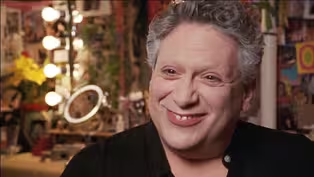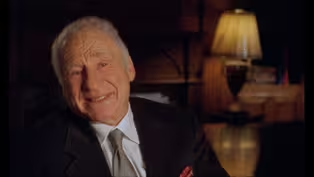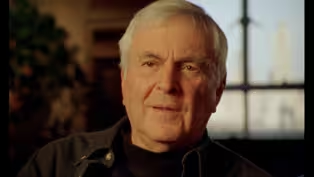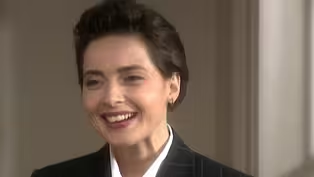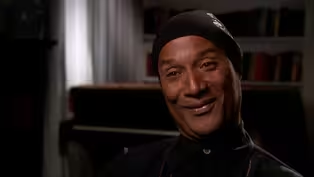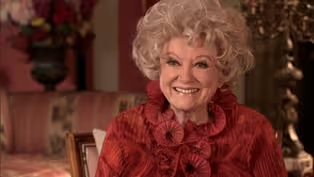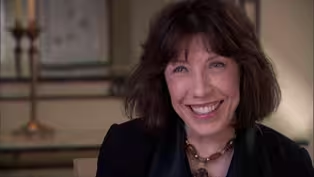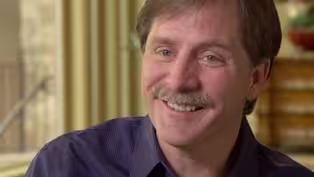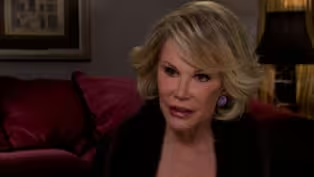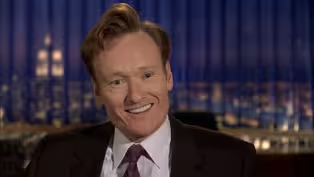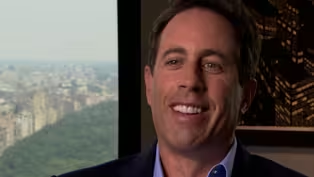
When Ringo Starr met Mae West
Special | 10mVideo has Closed Captions
Ringo Starr describes his friendship with Mae West.
In this interview from December 4, 2018, Ringo Starr describes his friendship with Mae West, which started on the set of of the 1978 film "Sextette," and how Mae was Mae both onscreen and offscreen. Interview conducted by directors Sally Rosenthal and Julia Marchesi for "Mae West: Dirty Blonde" (2020).
Problems playing video? | Closed Captioning Feedback
Problems playing video? | Closed Captioning Feedback
Support for American Masters is provided by the Corporation for Public Broadcasting, AARP, Rosalind P. Walter Foundation, Judith and Burton Resnick, Blanche and Hayward Cirker Charitable Lead Annuity Trust, Koo...

When Ringo Starr met Mae West
Special | 10mVideo has Closed Captions
In this interview from December 4, 2018, Ringo Starr describes his friendship with Mae West, which started on the set of of the 1978 film "Sextette," and how Mae was Mae both onscreen and offscreen. Interview conducted by directors Sally Rosenthal and Julia Marchesi for "Mae West: Dirty Blonde" (2020).
Problems playing video? | Closed Captioning Feedback
How to Watch American Masters
American Masters is available to stream on pbs.org and the free PBS App, available on iPhone, Apple TV, Android TV, Android smartphones, Amazon Fire TV, Amazon Fire Tablet, Roku, Samsung Smart TV, and Vizio.
Buy Now
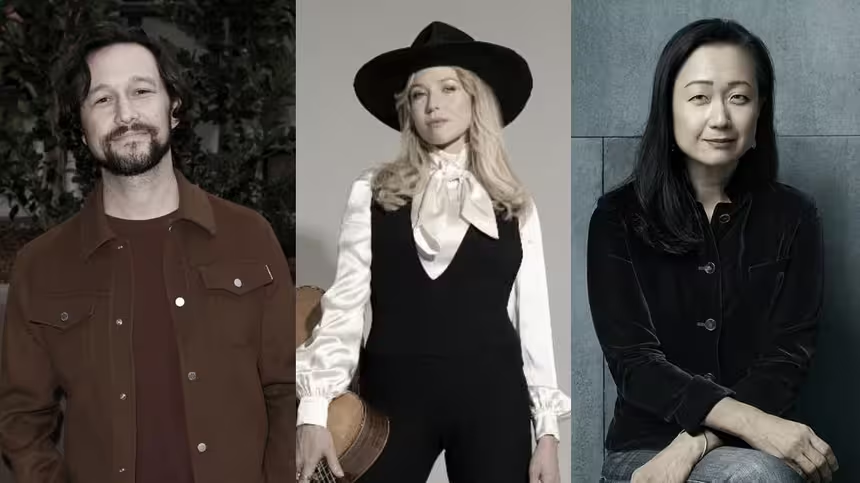
A front row seat to the creative process
How do today’s masters create their art? Each episode an artist reveals how they brought their creative work to life. Hear from artists across disciplines, like actor Joseph Gordon-Levitt, singer-songwriter Jewel, author Min Jin Lee, and more on our podcast "American Masters: Creative Spark."Providing Support for PBS.org
Learn Moreabout PBS online sponsorshipMore from This Collection
Watch curated interviews from The American Masters Digital Archive. The full collection includes over 1,000 hours of never-before-seen, raw interviews: a treasure trove of the movers and shakers of American culture, including Maya Angelou, Patti Smith, Mel Brooks, Carol Burnett, Matthew Broderick, Carl Reiner, Joan Rivers, Dionne Warwick, Lee Grant, Sidney Lumet, Betty White and many others.
Harvey Fierstein on gay representation on Broadway and its deep history
Video has Closed Captions
Harvey Fierstein talks to director Michael Kantor backstage during the production of "Hairspray." (13m 8s)
Mel Brooks' wild ride to his first Broadway show ever
Video has Closed Captions
Mel Brooks talks about the first Broadway show he ever saw—Cole Porter's "Anything Goes." (5m 44s)
John Kander and Fred Ebb on “Cabaret,” creativity and collaboration
Video has Closed Captions
Composer John Kander and lyricist Fred Ebb talk about how they have worked together. (5m 56s)
Isabella Rossellini compares her acting and modeling
Video has Closed Captions
Isabella Rossellini discusses her acting versus modeling career. (28m 24s)
Quincy Jones explains how he got started in music
Video has Closed Captions
Quincy Jones discusses his early career, friendships and how he defines himself. (15m)
Paul Mooney on his career and relationship with Richard Pryor
Video has Closed Captions
Paul Mooney reflects on the mechanics of stand-up and his role as Richard Pryor's best friend. (10m 39s)
How Phyllis Diller broke down the doors for female comics
Video has Closed Captions
Phyllis Diller reflects on how her comedy was a response to years of “take my wife” jokes. (11m 35s)
How Lily Tomlin found liberation in exploring her Laugh-In characters
Video has Closed Captions
Lily Tomlin speaks about her time on Laugh-In and how she developed her characters. (12m 35s)
Jeff Foxworthy on how every American might be a "redneck"
Video has Closed Captions
Jeff Foxworthy discusses regionalism in comedy and why "redneck" is a state of mind. (15m 41s)
Joan Rivers finds humor in being yourself
Video has Closed Captions
Joan Rivers speaks about her experience as a female comic in the early 60s. (9m 59s)
Conan O’Brien gets serious about silliness
Video has Closed Captions
Conan O’Brien speaks about his style of late night and his reason for doing comedy. (15m 32s)
Jerry Seinfeld on his place in American sitcom history
Video has Closed Captions
Jerry Seinfeld discusses his collaboration with Larry David and the evolution of the sitcom. (16m 1s)
Providing Support for PBS.org
Learn Moreabout PBS online sponsorship- [Crew] We're rolling.
- We're rolling.
Peace and love everybody.
- [Interviewer] So, well, I guess growing up in England, did you see any Mae West movies when you're a kid?
- No.
I don't think it was because I grew up in England.
I think it wasn't a movie I'd go to.
I don't know why.
I mean, I had no idea who she was in when, as a lad.
- [Interviewer] Well, how did you first become aware of her then?
Do you remember?
- Well, I first became aware of her in the 70s.
She wasn't doing a lot in the 70s, but her image was doing a lot and sort of people were talking about it and then they called me 'cause of the movie to do work with Mae West, I said, sure.
I just wanted to meet her really.
And she was just cool, you know what I mean?
She was really a cool lady.
And you always felt she was one of, in that period, she was one of the ladies in charge, you know, so we loved her for that.
- [Interviewer] When you say her image was doing a lot in the 70s, what do you mean?
- Well, I don't know if she was working a lot in the 70s.
Was she?
No.
So she came out of the blue and this was happening and I got involved really, 'cause this guy, Peter Brown, who used to work for us in England, he sort of nominated me.
And so, okay.
- [Interviewer] So why did you take the role?
- Huh?
I just thought it'd be great to hang out with Mae.
It wasn't a big role and it was good for me 'cause I was like this angry Polish guy.
No offense.
Hungarian, whatever, you know, slapping like the old image of a director in the job person and shouting.
So I liked it.
- [Interviewer] So what was your early impression when you met her?
- Well, it was incredible 'cause she came into the room, on the set, actually, and we did the photos and I put my arm around her and she had a steel, it felt like a steel corset.
I mean, there was no movement going on.
It was like solid.
And the most difficult thing was while we're working, I'd have to be in this high intense attitude.
And it was getting a bit late for her, and she had an earpiece, so you would be telling her hairline.
So I'd say, (speaking indistinctly).
And then I'd have to wait while you told her what she had to say, and then she'd say it, so there was these gaps all the time.
But it was still fun working.
It was just fun on the set, you know.
But that was the slowdown part, trying to keep up, you know, that intensity, and then wait 10 minutes whilst you learn the line in front of you.
Not 10 minutes, but someone said it to her.
- [Interviewer] You can sort of see that actually in the film.
- Yeah, it's like, (speaking indistinctly).
Back off, yeah.
But the other, I mean, the two really cool stories there about Mae were because of the film, but not in the film.
And she invited us to dinner and she went all the time to this restaurant she knew downtown.
I don't even remember the name.
But she gets there an hour earlier than you to do the lights.
So she got all the lights on her as you walk in the restaurant, you know, and we had a lot of fun.
- [Interviewer] Oh, that's amazing, I never heard that.
- Yeah.
Yeah.
And you know, we heard later that she does that whenever she goes.
She gets there early and makes sure the restaurant lights are on her.
And the other cool outside story was I threw a party in the house I had then up on Haslam Terrace.
And a lot of musicians, pop stars, rock stars, country stars, a lot of people were there.
And Mae came and she sort of sat here in this space and they were all kneeling down wanting to talk to Mae.
It was just like, you know, oh, okay, you know.
Oh yeah, tell me about it, baby.
It was like, it was a really cool night.
And she was just very cool with it all, of course, she loved attention, so this was great for her.
And so she made the party memorable to a lot of people in this town.
- [Interviewer] And she would've been in her mid to late 80s then?
- Probably, you know.
Yeah.
But it was like, you know, she was like the queen.
It was so great.
She just sat there.
Yeah.
Whatever she said to the others, you know?
Yeah.
- [Interviewer] Well, so when the reception comes out, I had seen this thing, Variety said, it was cruel, unnecessary, and mostly unfunny, which I don't particularly- - Well, everyone has an opinion.
I mean, as I said, I haven't seen it in a hundred years, so I'd have to see it again to know anything about it really.
- [Interviewer] How would you describe the Mae West sort of persona?
- Well, her persona was bigger than life, I mean, and as I said to you before, she, you know, was a woman of the world and she took command, and you felt that from the start.
Doesn't matter I'm 86, I'm still here, you know.
She had a really cool thing, which was great for us.
You know, we'd hang out.
Keith Moon came and Harry Nilsson, we'd hang out there and just generally hang out.
- [Interviewer] But was she different offset or was she always- - No, she was Mae.
Oh no, Mae was Mae in the restaurant and Mae on the set.
She'd, the attitude was she would like, she had that walk in no matter where it was.
She would like, well, I'm here, you know, lads, whatever.
- [Interviewer] Well, so this film's for a series called American Masters.
- Yeah.
- [Interviewer] Would you, what would you say Mae was the master of?
- Oh, I thought she was the master of attitude and, you know.
Yeah.
Attitude.
I mean, she came on strong and she'd face you down, you know?
Yeah, I think that was her attitude.
But it was, I didn't feel it was in an angry way.
It's just like, hey, I'm here.
I didn't think it was like, eh, you know, I'm here.
And usually people do that when they're very weak inside and they put on an act.
I thought she was just, I'm Mae West.
- [Interviewer] So you didn't think she was weak inside?
- I did not.
No.
No.
And she was great and she was, you know, courteous and, you know, as I say about the party, all these people like, like bugging her, really?
Because, you know, I don't think anyone had met Mae at this party and everyone wants to say hi, 'cause everybody knew about Mae, but it was a thrill for everyone.
And people to this day still say, "Oh, wow, man, that party and Mae was there, "you know, Mae West."
So yeah, it was a good night.
- [Interviewer] I'm sure she loved it too.
- I'm sure she did.
That's what I'm saying.
She wasn't, you know, she was, she felt strong, but she was courteous as well.
She was like, you know, she's like, she'd loved it.
I mean, you gotta imagine she's sitting down in this house, and I don't know if she knew any of the other people, because, you know, there were musicians and pop stars of the day, and that was the 70s, but they were phoning all over us.
So what's not to like, you know?
- [Interviewer] I mean, it seems, from everything, we've talked to a bunch of her friends who are still around, and they all say that until the day she died, she thought she was just the most beautiful woman walking the earth.
- Yeah.
I go along with that.
She just had it really, you know what I mean?
She was Mae, and that was that.
And it's take me or take me, you know, and it was, that was it.
Nobody's gonna leave her, 'cause she was powerful.
- [Interviewer] That's great.
Well, she's on the Sergeant Pepper album.
- Well, yeah, she is from the 60s.
That was John's idea.
Put Mae on, and okay.
But I don't know if he knew a lot about it either.
But she was like the Mae West.
She was big in the movies and it was quite a few movie stars on the, so you'll have to ask him.
- [Interviewer] All right, I'll get up the, the board for that.
Okay, Julie, do you have any other questions?
- [Julie] No, I think that was fun.
That was great.
- Yeah.
- [Interviewer] Yeah, I think, I think we have everything.
- [Julie] There's nobody like her today, right?
I mean, is there anyone you can think of?
- No.
No, I can't actually.
You know, she was, I think from the, the minute she woke up till she went to sleep, she was, I am Mae.
And you know, maybe she went home and cried, but we never saw that, I don't know.
But for the small amount of time I spent with her, she was Mae, you know.
Support for PBS provided by:
Support for American Masters is provided by the Corporation for Public Broadcasting, AARP, Rosalind P. Walter Foundation, Judith and Burton Resnick, Blanche and Hayward Cirker Charitable Lead Annuity Trust, Koo...

